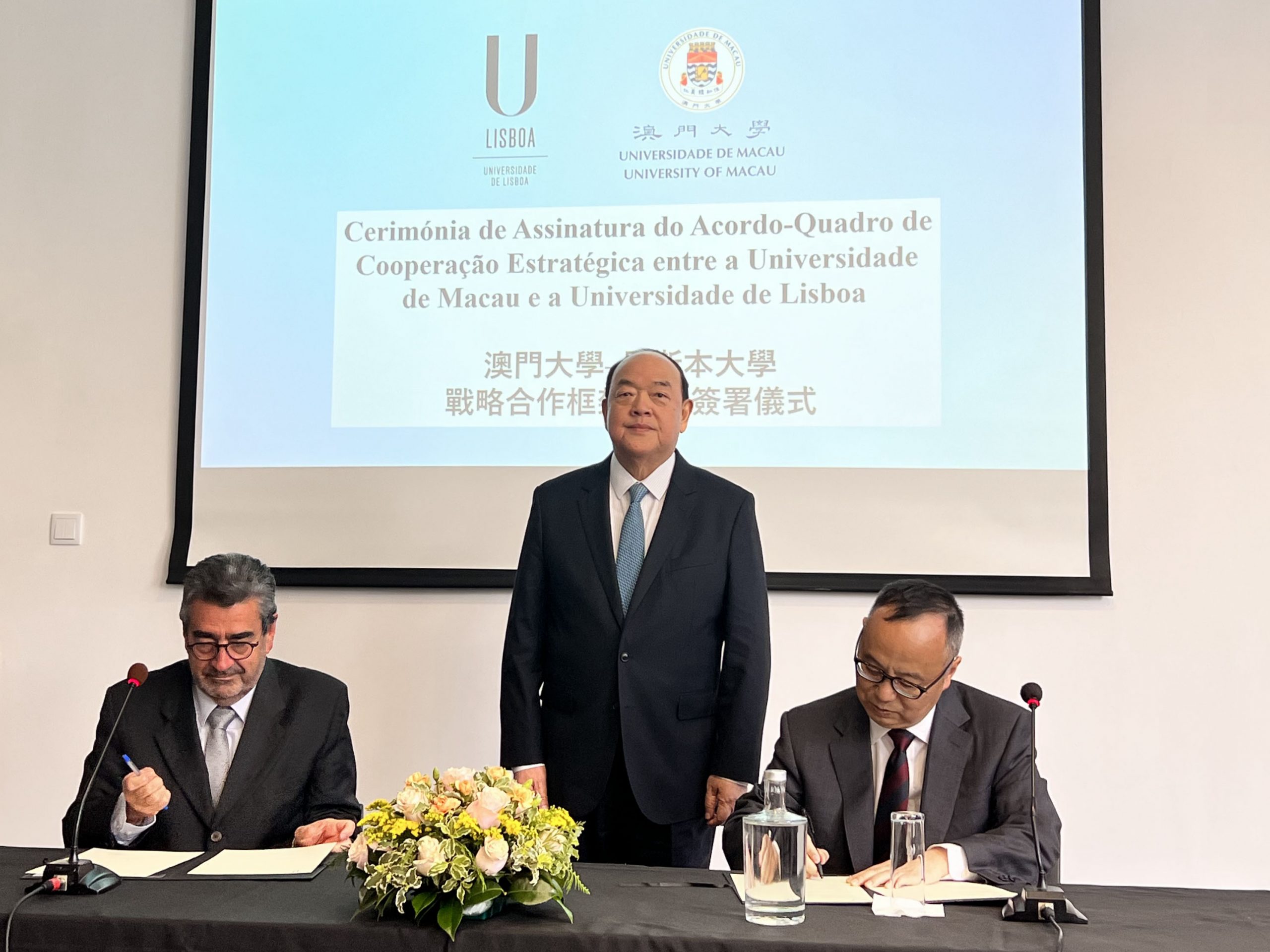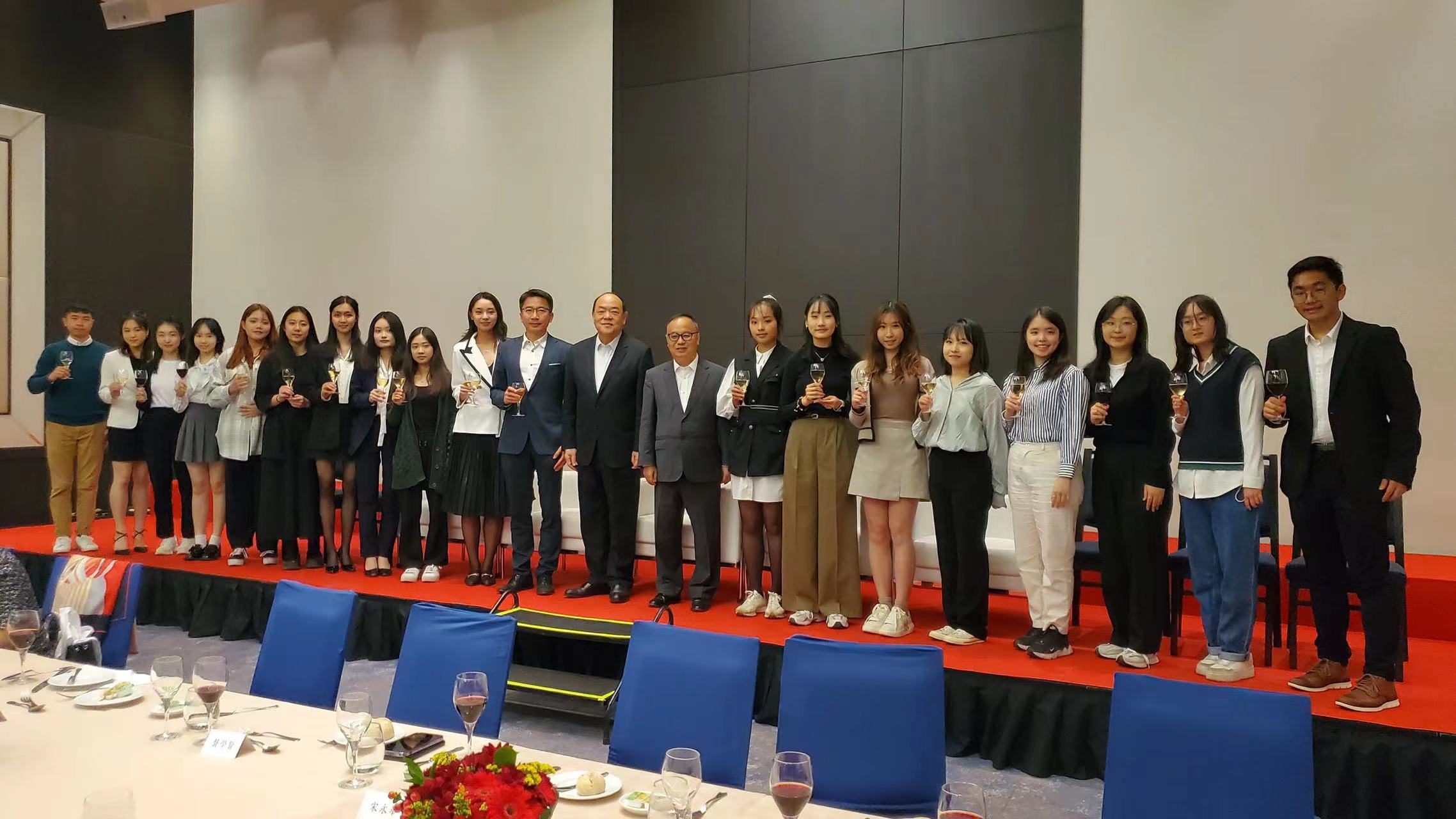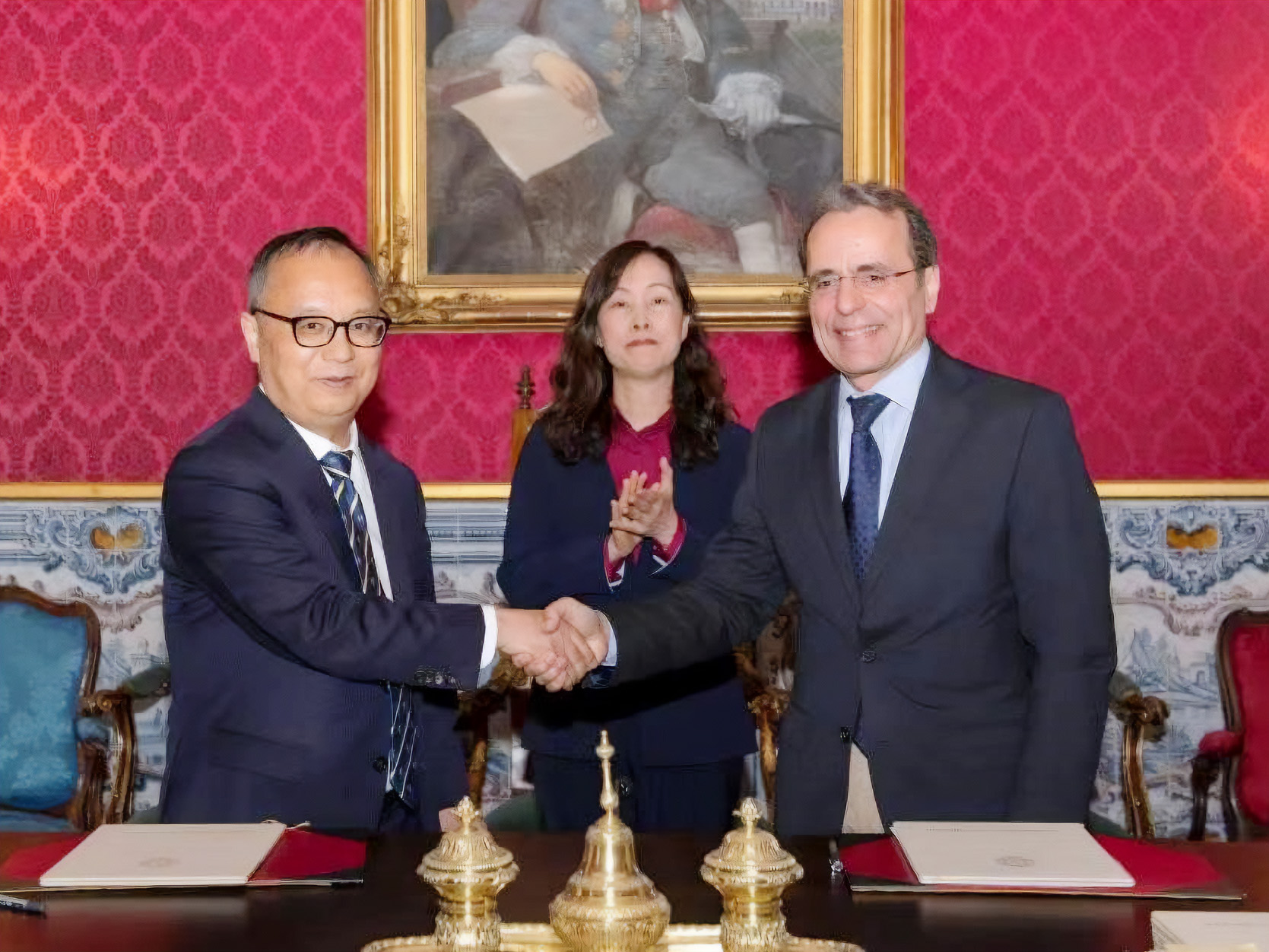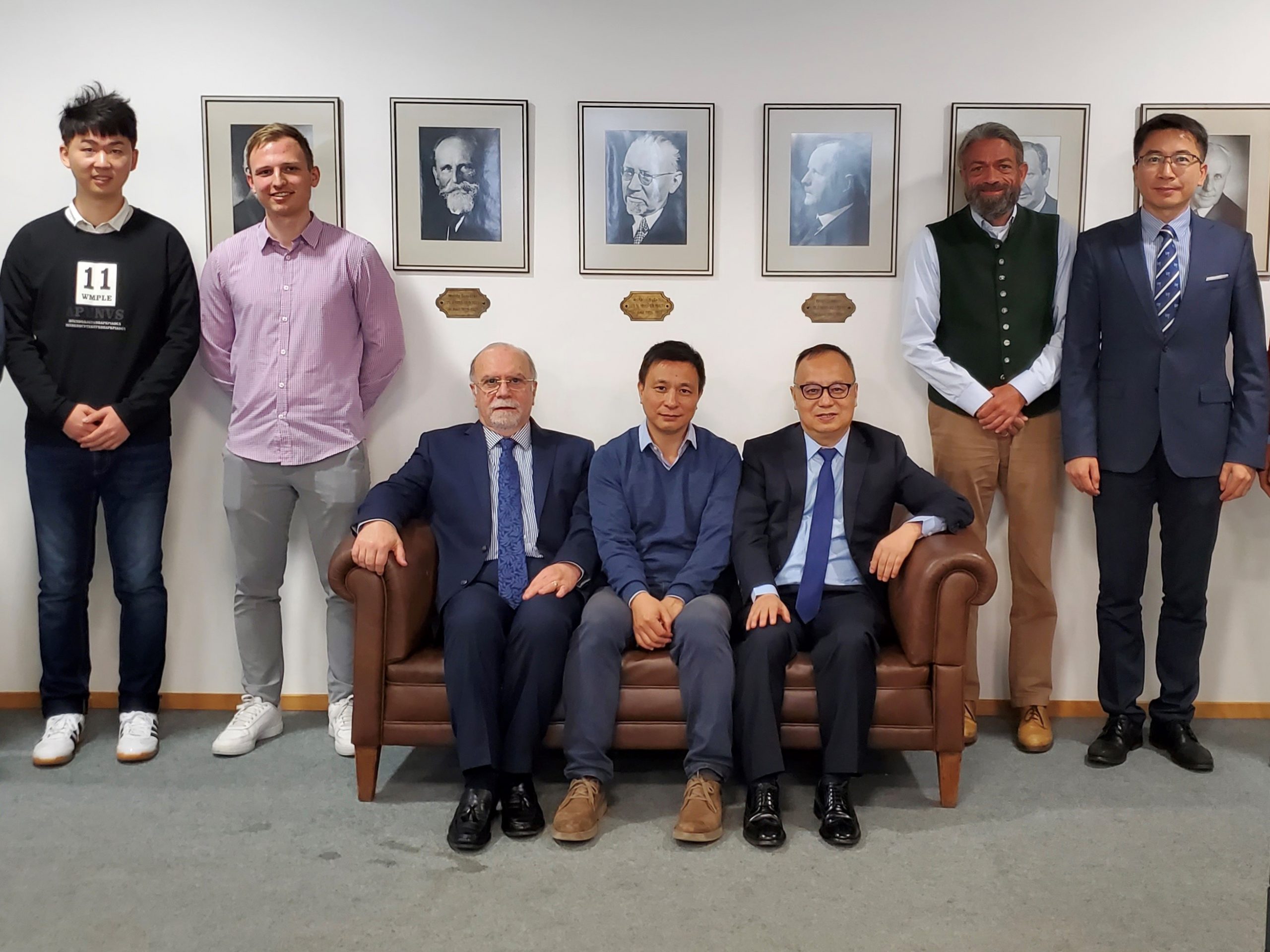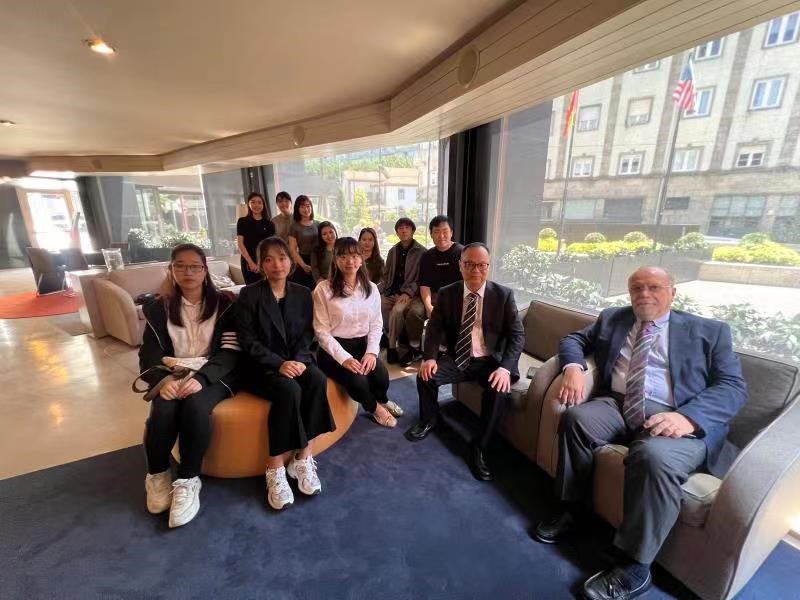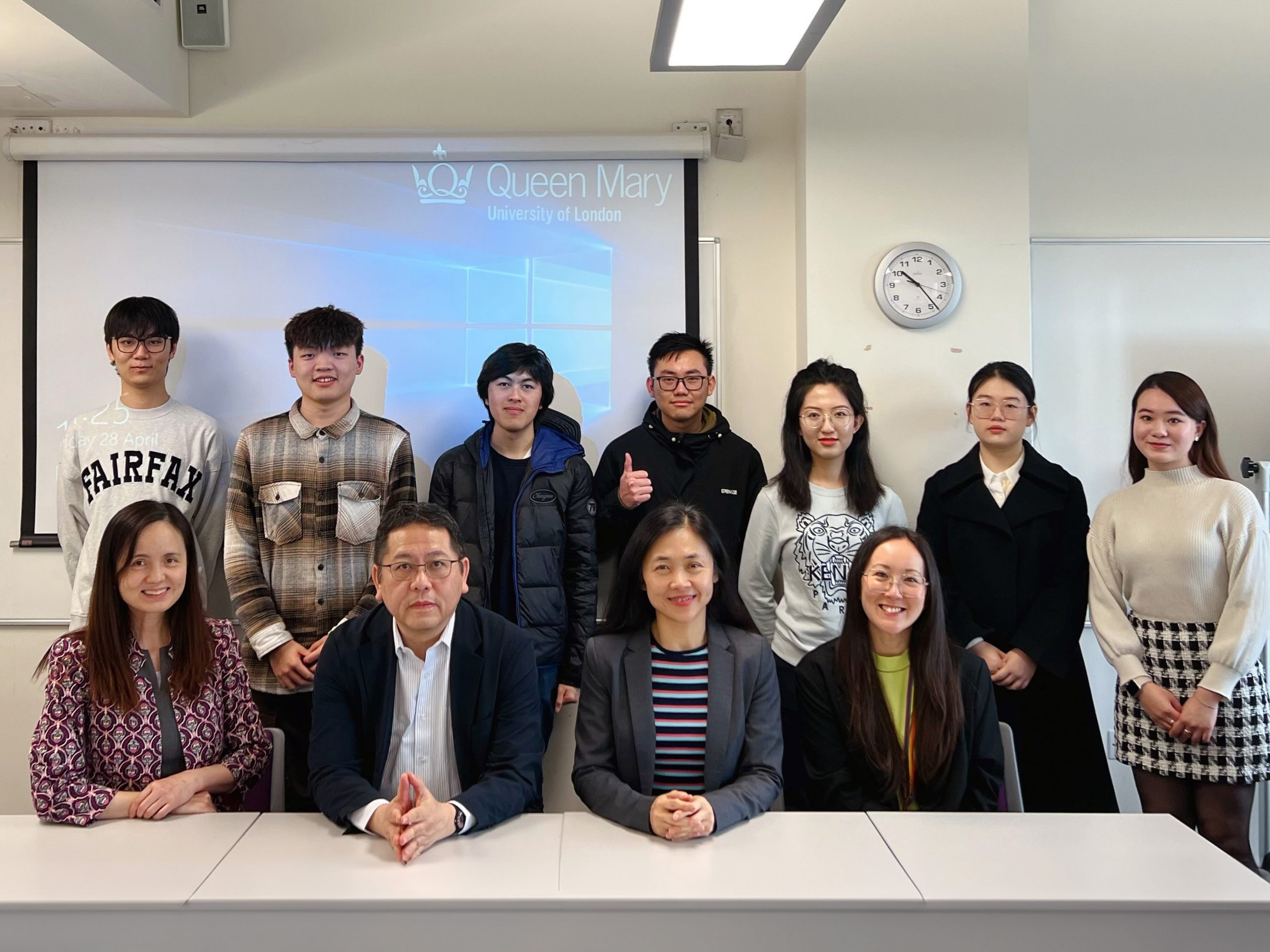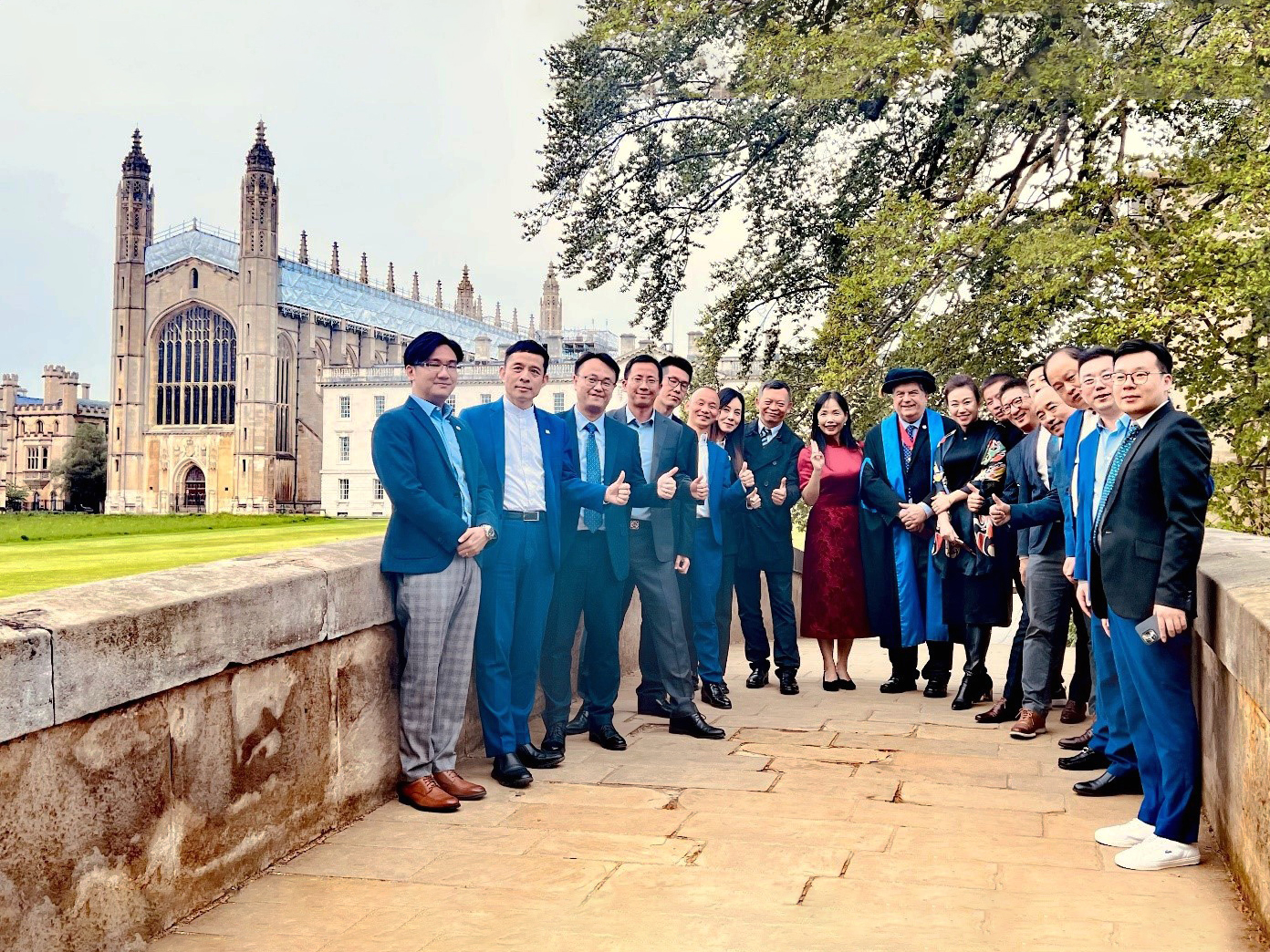Macao, a city where Eastern and Western cultures have intertwined for over four centuries, is home to the University of Macau (UM). The university’s logo, depicting a bridge, serves as a symbol of this cultural fusion. Drawing from Macao’s cultural mosaic, UM has cultivated robust connections with universities worldwide. Recently, the university has expanded its collaborations and partnerships with universities and institutions in Europe to include academic research and exchanges, student exchange programmes, and talent development programmes. These efforts stimulate cooperation between the UM community and its international counterparts, enhancing understanding of diverse cultures, catalysing research advancements across multiple fields, and fostering a more comprehensive global perspective.
Enduring bonds with universities worldwide
As early as 1594, Jesuits from Europe pioneered higher education in the region by establishing St. Paul’s College in Macao, the first Western-style university in the Far East. Nevertheless, the college was suspended in 1762 and destroyed by a fire in 1835, resulting in a lengthy hiatus in Macao’s higher education development. The journey resumed only in 1981 with the establishment of the University of East Asia (UEA). In 1988, the Government of Macao acquired UEA and transformed it into a public institution, which was subsequently renamed the University of Macau in 1991. Since its inception, the university has endeavoured to strengthen its ties with academic institutions, particularly those in the Commonwealth and Portugal. This commitment is exemplified by staff secondments from the Open University in the UK in 1984, and the launch of a bachelor’s degree programme in public administration in collaboration with the National Institute of Administration of Portugal in 1989.
UM has nearly 300 partners across 35 countries and regions. This network thrives on joint talent development programmes, exchanges of students and staff, research collaborations, and academic resource sharing. In early 2023, UM Rector Yonghua Song led delegations to Asia and Europe to establish cooperation agreements with various universities. ‘We are committed to leveraging our strengths to foster academic exchanges and collaborations worldwide while enhancing our academic standing, expanding our international influence, and providing excellent global opportunities for our students and faculty,’ says Rector Song.
UM offers a range of joint talent development programmes in collaboration with prestigious universities. One of these programmes is the ‘3+2’ dual bachelor’s degree programme with Queen’s University Belfast in the UK, which allows graduates to obtain a Bachelor of Science degree in biomedical sciences from UM and a Bachelor of Science degree in food science and nutrition from Queen’s. In partnership with Imperial College London, the University of Bristol, and the University of Edinburgh, UM offers ‘1+3’ combined master’s and doctoral degree programmes. Under this arrangement, students can earn a master’s degree from the partner universities before returning to UM to pursue their doctoral studies. Moreover, UM is in discussions with another UK university to jointly offer a master’s degree in English studies. The university also collaborates with Portuguese universities, offering a ‘3+2’ combined bachelor’s and master’s degree programme in electrical and computer engineering with the University of Lisbon. UM is also exploring with the University of Porto a potential dual doctoral degree programme in medicine and pharmacology.
Joint efforts with European institutions and companies
UM maintains strong ties with universities in Portugal through platforms such as the Association of Portuguese Speaking Universities, of which UM serves as a vice president, and the Council of Rectors of Portuguese Universities. The university also extends its cooperation to other European universities through international organisations such as the Eurasia-Pacific Uninet. Moreover, UM is a recent member of the Alliance for International Educational and Cultural Exchange, the Knowledge Equity Network, and the Social Sciences Universities Network, all of which have considerable representation in Europe.
In addition, UM has participated in the European Union’s Erasmus+. As one of the programme’s participating institutions in the Macao SAR, the university has sent and received students, professors, and administrative staff to and from higher education institutions in Europe throughout the years.
UM has also fostered collaboration with various European companies, bridging the gap between industry, academia, and research. An example is the partnership established in 2014 between a research team at UM’s Institute of Chinese Medical Sciences and the Portuguese biotech firm TechnoPhage. They have focused their efforts on the development of PD-001 Molecule, a dietary supplement. The supplement contains the bioactive ingredient PD-001, a novel compound discovered by the research team from the Chinese medicinal plant Alpinia oxyphylla. The compound has demonstrated promising results in preventing and slowing down Parkinson’s disease progression.
Broadening partnerships with European universities
Beyond Portugal, Rector Song led a delegation to visit universities in Germany, Belgium, and Spain in the first half of 2023, with the aim of expanding UM’s network in these countries. In Germany, the UM delegation explored potential interdisciplinary collaboration in energy and materials science with the Institute of Thermodynamics at the Technical University of Munich. An agreement was also established with Constructor University in Bremen, which included a memorandum of understanding (MOU) and a student exchange agreement. Furthermore, UM and Leibniz University Hannover reached a consensus to enhance their doctoral student exchange programmes and foster collaborative research, leveraging the strengths of both universities. During their visits to the Dresden University of Technology and the Technical University of Berlin, UM representatives engaged in comprehensive discussions with their counterparts. They reached agreements to cooperate in the areas of talent development and research, particularly focusing on biomaterials and smart energy.
Rector Song also visited Katholieke Universiteit Leuven (KU Leuven) in Belgium, where the two universities explored the establishment of student exchange schemes and ways to strengthen partnerships in doctoral training and research. During a trip to Spain, an agreement was reached with the University of Barcelona, covering initiatives such as student exchange programmes and joint research projects. UM members also had in-depth discussions with representatives of the Autonomous University of Barcelona and the Polytechnic University of Catalonia on academic exchanges, joint research, and talent development.
In May 2023, another UM delegation made a visit to the UK. The delegation, led by Prof Rose Lai, dean of the Honours College (HC), Prof Raymond Loi, associate dean of the Faculty of Business Administration, and Prof Miao Li, head of the Department of Integrated Resort and Tourism Management, visited several universities to forge academic partnerships with international appeal and global competitiveness. These universities included the University of Cambridge, Imperial College London, the University of Bristol, the University of Bath, the University of Surrey, and Queen Mary University of London. During their time in the UK, the delegation also met with HC students studying at the University of Bristol and Queen Mary University of London to learn about their experiences with the HC’s Study Abroad Programme.
Strengthening ties with Portuguese-speaking universities
Since becoming sister universities in the 1980s, UM and the University of Lisbon (ULisboa) have built a strong relationship. In April 2023, Rector Song and Vice Rector Rui Martins visited Lisbon. During the visit, they not only reinforced UM’s partnership with ULisboa by signing a new agreement, but also extended the university’s collaborative efforts by establishing agreements with the Laboratory of Robotics and Engineering Systems (LARSyS), the Macau Scientific and Cultural Centre in Lisbon, and the Polytechnical Institute of Lisbon. The agreements all focus on deepening cooperation in research, teaching, and talent development to enhance higher education in both Macao and Portugal.
During this trip to Lisbon, UM established a strategic cooperation framework agreement with ULisboa, under the witness of Ho Iat Seng, chief executive of the Macao Special Administrative Region (SAR). According to the agreement, UM will offer scholarships to doctoral students jointly supervised by the two universities and support post-doctoral researchers as well as visiting scholars to conduct collaborative research in areas such as microelectronics, pharmacology, robotics, marine science, biomedical sciences, and materials science. In addition, UM and ULisboa will host annual meetings to strengthen their cooperation and facilitate the development of university alliances such as the Academic Library Alliance between Macao Special Administrative Region and Portuguese-speaking Countries and the University Alliance for Portuguese Language Education in China, of which UM serves as a vice president. Apart from formalising these academic collaborations, Rector Song accompanied Chief Executive Ho Iat Seng to meet with over 130 Macao students studying in Portugal, including more than 30 exchange students from UM.
In pursuit of research excellence, UM signed a tripartite MOU with LARSyS in Lisbon and Laoshan Laboratory in Qingdao to foster the development of the China-Portuguese Speaking Countries Ocean Research Alliance, of which UM serves as president. In terms of humanities research, UM has established a partnership with the Macau Scientific and Cultural Centre under Portugal’s Ministry of Science, Technology and Higher Education. Together, they plan to build the Portuguese-Asian Digital Archive Network. The network will gather documents, publications, historical materials, and data concerning interactions between Europe and Asia from the 16th to the 20th century, thereby promoting Portuguese-Asian relations and historical research.
On another trip, Rector Song, as part of an official delegation led by Ao Ieong U, secretary for social affairs and culture of the Macao SAR, visited the University of Coimbra. A strategic cooperation framework agreement was signed between the two universities on this occasion, paving the way for enhanced collaboration in areas such as artificial intelligence, robotics, brain science, law, business, and international relations. The agreement is set to facilitate faculty exchanges, joint applications for project funding, and the organisation of academic lectures and conferences. In addition, a tripartite MOU was established among UM, the University of Coimbra, and Renmin University of China. The aim is to encourage joint research and academic exchanges and to promote faculty and student mobility, with a particular focus on the fields of law and literature. During a visit to Porto, UM entered into a strategic cooperation framework agreement and a student exchange agreement with the University of Porto. According to the agreements, the two universities will concentrate on key areas such as pharmacology, law, and the Portuguese language, enhancing collaborations in talent development, research, and student and faculty exchanges.
Deepening partnerships with universities in Portuguese-speaking countries is a fundamental part of UM’s internationalisation strategy. To bring this commitment to life, UM has established student exchange programmes with eight Brazilian universities and is dedicated to fostering collaboration in science and education and promoting the sharing of academic resources through international alliances. These alliances include the Association of Portuguese Speaking Universities (AULP), the China-Portuguese Speaking Countries Ocean Research Alliance, and the Academic Library Alliance between Macao Special Administrative Region and Portuguese-speaking Countries. In February 2023, a UM delegation, led by Prof Hu Weixing, dean of the Faculty of Social Sciences, and Prof Wang Ruibing, director of the Global Affairs Office, visited several key institutions across Brazil, namely the Getulio Vargas Foundation, the University of São Paulo, the State University of Campinas, the Federal University of Rio de Janeiro, and the Pontifical Catholic University of Rio de Janeiro, to explore new opportunities for collaboration.
Growing global connections
Committed to the development orientation of ‘being rooted in Macao, taking part in the development of the Greater Bay Area, integrating into the nation, and going international’. UM is putting its ‘4S’ internationalisation strategy into action. Rooted in four core principles—‘Strategic’, ‘Substantial’, ‘Specific’, and ‘Sustainable’, the strategy aims to consolidate and enhance the university’s international characteristics.
Guided by its ‘4S’ internationalisation strategy, UM has forged strong ties and collaborations with partners across the globe. The strategy has also enabled the university to leverage its unique strengths in various fields and foster cooperation with top-notch universities and research institutes. Its effectiveness is demonstrated in UM’s partnerships with institutions across Europe, Portuguese-speaking countries and beyond. Moving forward, with the continued implementation of the ‘4S’ strategy, the university will offer more opportunities for international cooperation, as well as cross-cultural learning experiences for UM’s students and faculty members.
Text & Photo: Editorial Board
English Translation: Davis Ip
Source: My UM ISSUE 125
